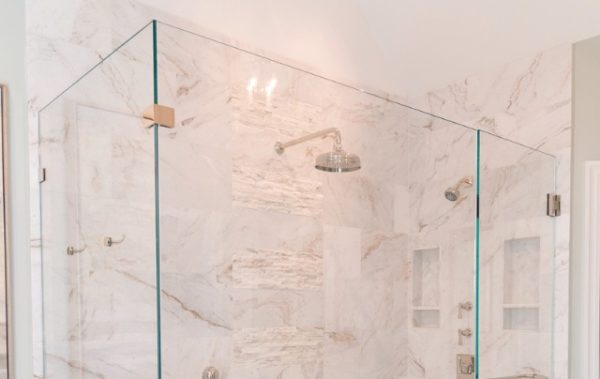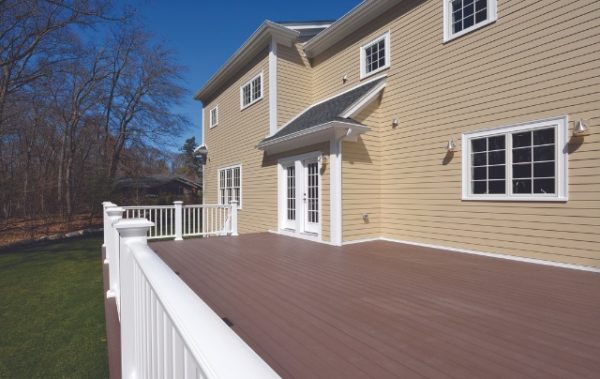Tips to winterize your house and garden

If you blink, you’ll often miss the changing of the seasons here in Georgia, but rest assured, your yard knows exactly what’s happening. From gardens to water features and your home’s exterior, we gathered tips from the pros for a little pre-season maintenance that will take your grounds healthily through the cold snap.
Plant Care
Clear away dead plant material, fallen leaves and debris from your garden beds to prevent pests and diseases during the winter. If you’ve got an edible garden, harvest any remaining vegetables and herbs before the first hard frost.
Cut back dead or damaged branches from trees and shrubs. Trim herbaceous perennial plants to about 2 to 3 inches above the ground to encourage healthy growth in the spring. Mow the lawn one final time, slightly shorter than usual.
Cover the ground around plants with a layer of mulch to insulate the soil and protect the roots from temperature fluctuations. Use organic mulch such as straw, leaves or wood chips and don’t pile the mulch directly against plant stems. Cover delicate plants with burlap or frost cloth when the temperature is expected to drop to freezing.
Carry potted plants to a sheltered location or closer to the house, where they can stay warmer.
Gardening tips by owner, designer and creator at Arcoiris Design, Adriana Hernandez. www.arcoirisdesign.com
Prune this
Most ornamental grasses benefit from being cut back in late winter or early spring, before new growth emerges. Trim them down to a few inches above the ground to encourage fresh growth.
For most deciduous trees (trees that lose their leaves in winter), the dormant season, which typically occurs from late winter to early spring, is an ideal time for pruning (late January to early March).
Something for the birds
Birdbaths are a super important water source for backyard birds, and they need it throughout the winter! Take these steps to make sure it doesn’t freeze and potentially crack: keep it in a sunny spot so it can stay warm, keep the water level full and moving if you can and check out bird bath heaters as a nifty accessory. If it does freeze, use lukewarm water to defrost the ice.
Protect your water lines
For a water line to your outdoor kitchen sink, make sure to turn off the water and open up the faucet to prevent freezing and possible bursting.
What about outdoor appliances?
The outdoor experts at BBQ Guys said that if you aren’t going to need your outdoor refrigeration this winter, unplug those appliances to conserve energy. The majority of appliance and storage components are outdoor rated and designed to withstand winter weather, so you can keep grills, side burners, griddles and pizza ovens operating all year long. www.bbqguys.com
Can outdoor furniture be left outdoors in the winter?
Larry Finglass, owner of Atlanta Teak Furniture said that most outdoor furniture is built to withstand the elements, but if you do opt to cover it, make sure it isn’t too tight. Without adequate airflow, your covers can actually trap moisture underneath and create an environment for mold and mildew to thrive. Buy your covers a little big and use inflatable pillows or toys to create some space, or dome effect, so air can circulate. www.atlantateak.com
Prep your pool for winter
When the swimming window officially closes, prep your pool to fight off bacteria and algae so it’s ready to open back up in the spring. First, test and balance the water for ideal levels of alkalinity (80 to 150ppm), pH (7.2 to 7.6) and hardness (175 to 275ppm). Then, clean the pool and your filter. Shock the pool to destroy bacteria, algae and other waste matter and circulate for at least four hours. Add a dose of algaecide and let the pump run for 24 hours. Lastly, turn off your pool equipment, then plug and cover your pool.
Get a professional to help! Winterizing your pool doesn’t have to be DIY. Many professional pool companies provide these services for you.
Get your unit inspected before wintry weather sets in
Prepping your heater for winter can help prevent fire hazards, prolong the life of your unit and keep you warmer at home, say the Trust-Certified technicians at Coolray. Just because your furnace was working last year, doesn’t mean it’s fine for the next one. A professional inspection includes thoroughly cleaning the inside and outside of your furnace, lubricating any moving parts and testing your furnace for proper operation. Coolray’s HVAC technicians can help find problems with your furnace and thermostat before the winter season starts and can repair them in a timely manner. www.coolray.com
Weather-seal your garage doors
The garage door is one of your home’s first lines of defense against the elements, say the professionals at Overhead Door Company of Atlanta™. Inspect your door and lubricate all of its moving parts to ensure it operates smoothly. Then, make sure it seals correctly, replace any damaged or missing pieces of the seal and have a technician replace your weather stripping before it gets cold.
www.overheaddooratlanta.com.
My winter action plan
Last December, many people were not prepared for the aftermath the extremely low temperatures caused, said Candice Skinner, business development director for Exovations. Here’s what she says you can do to prevent that this winter:
Leave your faucet dripping if there is a hard freeze coming, unhook your garden hose and cover your hose bib with insulated covers.
Make sure your gutters are cleaned out. If they’re clogged and water fills them up and there is a freeze, the weight of the gutters can cause them to fall off the house. Missing gutters can lead to a number of other issues, including moisture seeping into your home and causing rot and mold damage.
Replace drafty windows and doors to prevent unwanted air flow into your home, which makes every room colder in the winter, driving up your energy bill. If your windows and doors are in good condition, it’s always good to have the weather stripping checked season to season to help prevent air leaks.

This Month’s Home Project – Cool, Clever Kitchen

The 36th Annual Fall Atlanta Home Show

Q & A – How do I know when I can repair versus replace my entire foundation?

Award-Winning Kitchens, Baths, Interior Design and More

Atlanta’s NKBA Designs of Distinction 2019 Winners

100 Things to Know Before You Remodel

What’s the simplest way to upgrade your window treatments?












